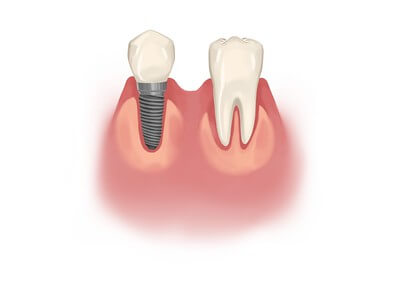Periodontal disease affects millions of people worldwide. It is a common and severe oral health issue that causes inflammation and infection of the gum tissues surrounding the teeth. If left untreated, periodontal disease can lead to tooth loss and other health complications. Dental implants are a popular solution for people with missing teeth, but can they be used for those with periodontal disease? In this blog post, we will explore the benefits and risks of dental implants for patients with periodontal disease.
What are Dental Implants?
Dental implants are artificial tooth root replacements used to support a restoration that resembles a tooth or group of teeth. They offer a long-lasting and stable solution for missing teeth, improving the functionality and appearance of the mouth. The implants are typically made of titanium and surgically placed in the jawbone to fuse with the bone over time.
How are Dental Implants Placed?
Placing dental implants requires a surgical procedure that involves cutting the gum tissue and drilling a hole in the jawbone. The implant is then placed in the drilled hole and covered with gum tissue. Over time, the implant will fuse with the bone, creating a sturdy and permanent foundation for the restoration. After the implant heals, the dentist will attach an abutment and a dental crown or bridge to the implant to create a functional and natural-looking tooth.
Can Patients with Periodontal Disease Get Dental Implants?
Patients with periodontal disease can still get dental implants, but the treatment requires additional precautions. Before the implant surgery, it is essential to treat any existing periodontal disease, and the patient should have good oral hygiene habits. The dentist will perform a thorough evaluation of the gum tissue and jawbone to ensure they are healthy enough to support an implant. In some cases, patients may require bone grafting to strengthen the jawbone before implantation.
Are There Any Risks?
Dental implant placement is a safe and successful procedure, but it does come with some risks, especially for patients with periodontal disease. The surgery can cause bleeding, inflammation, and a risk of infection. Patients with periodontal disease also have a higher risk of implant failure due to weakened gum tissue and bone. Proper oral hygiene practices and regular dental visits can help mitigate the risks and improve the chances of a successful outcome.
How Do Dental Implants Benefit Patients with Periodontal Disease?
Dental implants are an excellent solution for patients with missing teeth due to periodontal disease. They offer a permanent replacement that looks and functions like a natural tooth. Dental implants also stimulate the bone tissue, preventing bone loss and gum recession that can occur with missing teeth. They can improve eating and speaking ability, boost self-confidence, and reduce the risk of oral health complications.
Conclusion
Dental implants are a safe and effective way for patients with periodontal disease to restore their missing teeth. Despite the additional precautions needed, dental implants offer a long-lasting and stable solution that improves the appearance and functionality of the mouth. If you have periodontal disease and are considering dental implants, consult with a qualified dentist to determine the best treatment options for your unique needs.



